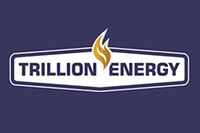A brief overview of oil price developments, supply and demand and significant market movers.
Oil prices fell on Monday following a prolonged period of strong gains as analysts warned that trading could be volatile on the back of growing tensions in the Middle East.
Israel has hinted that its air force may have been responsible for an air strike on a Syrian missile base that it thought was manufacturing weapons headed for Lebanon. Israel has also voiced concern that Iran is moving closer to developing a nuclear weapon.
Gordon Kwan, head of energy research at Mirae Asset Securities, told Fox News, “[t]he market realizes that geopolitical jitters will escalate at the end of the U.N. talks with Iran. If Iran courts this nuclear enrichment program, then there is a risk of war in the Persian Gulf.”
Analysts believe that a regional war could threaten energy supplies from Middle Eastern producers, sending oil prices higher.
By early afternoon on Monday, West Texas Intermediate crude for March delivery was down $1.46, at $96.32 a barrel, in trading on the New York Mercantile Exchange.
US Energy Secretary Steven Chu confirmed that he plans to step down from his post to return to teaching and research as soon as President Obama names a successor. During his tenure leading the Department of Energy (DOE), Chu has pushed for funding to support research on the development of new technologies that could wean the United States off fossil fuels.
He was also the first energy secretary to secure funding for the DOE’s Advanced Research Projects Agency-Energy (ARPA-E) — a scheme created to help kickstart clean-energy technology companies. When he leaves Washington, Chu plans to return to California, where he spent 17 years on the faculty at Stanford University and served as director of the DOE’s Lawrence Berkeley National Laboratory.
Iraq has signed a final service contract with a consortium of two gulf companies, one of which is based in Kuwait, to develop the ninth of 12 exploration blocks included in the fourth round of licenses.
The signing completely ruled out a Turkish company that was part of the initial awarding of this contract, according to Middle East media source Al-Monitor.
“While this contract reflects the improved economic relations between Iraq and Kuwait following years of animosity, it also shows the depth of the dispute between Baghdad and Ankara,” it said.
Iraq gave the Kuwait Oil Company and Emirati Dragon Oil the final rights to explore and develop an area estimated at about 900 square kilometers in the oil-rich southern city of Basra.
Venezuela’s government announced plans to have the state-run Petroleos de Venezuela (PDVSA) turn over more of its earnings to the Central Bank in an attempt to counter shortages of food and other products — the result of a lack of dollars provided to importers at official rates.
Oil Minister Rafael Ramirez announced the change, confirming that PDVSA will increase by nearly $2.5 billion the amount of dollars it turns over to the Central Bank in 2013.
Ramirez confirmed that President Hugo Chavez had supported changing the law; it is to be approved by the National Assembly, where pro-Chavez lawmakers hold the majority.





